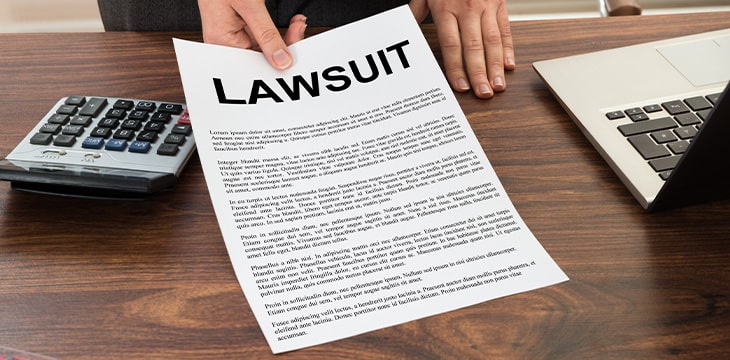|
Getting your Trinity Audio player ready...
|
Can members of decentralized autonomous organizations (DAOs) and governance token holders be held liable for the crimes of a few individuals within the organization? This is the question at the heart of a new enforcement action by the U.S. Commodity Futures Trading Commission (CFTC), which is going after a decentralized autonomous organization (DAO) for violating the Bank Secrecy Act.
The regulator recently announced that it had settled with Tom Bean and Kyle Kistner, the founders of decentralized lending protocol bZeroX, for “illegally offering leveraged and margined retail commodity transactions in digital assets; engaging in activities only registered futures commission merchants (FCM) can perform.” The two also allegedly failed to adopt know-your-customer (KYC) programs for the protocol, violating the Bank Secrecy Act.
CFTC requires the two to pay a $250,000 civil monetary penalty and “to cease and desist from further violations of the Commodity Exchange Act.”
In the second part of the complaint, the CFTC questioned the role and legal responsibilities of DAOs and their members after suing the Ooki DAO with similar violations.
The Ooki DAO is the successor to the bZeroX and governs the Ooki Protocol—which is the successor to the bZeroX protocol—through OOKI governance tokens.
CFTC claims that changing from bZeroX to Ooki was just a cunning way for the founders to make their illegal operation “enforcement-proof” and to allow for “the Ooki DAO to violate the CEA and CFTC regulations with impunity.”
In its complaint, filed in the Northern District of California, the regulator quoted one of the founders who claimed in a call at the launch of Ooki DAO that “really what we’re going to do is take all the steps possible to make sure that when regulators ask us to comply, that we have nothing we can really do because we’ve given it all to the community.”
The founders were wrong, “DAOs are not immune from enforcement and may not violate the law with impunity,” the CFTC says.
By operating the Ooki Protocol, the DAO is illegally engaging in activities that only licensed entities should.
“In addition, the Ooki DAO does not conduct KYC diligence on its customers (and in fact advertises the lack of KYC requirements as a positive feature of the Ooki Protocol),” it added.
CFTC Commissioner dissents, ‘crypto bros’ in uproar
The lawsuit is the first time regulators have gone after a whole DAO, including all the token holders who didn’t actively participate in any illegal actions. If upheld, the action would set the precedent for future enforcement actions involving DAOs, and already, it’s ruffling quite a few feathers.
One of the first to criticize the agency’s action is CFTC Commissioner Summer K. Mersinger. In her dissenting statement, the Republican commissioner claimed that the agency “cannot arbitrarily decide who is accountable for those violations based on an unsupported legal theory amounting to regulation by enforcement while federal and state policy is developing.”
Mersinger claims that this approach by the agency doesn’t rely on any legal authority in the commodities laws. Instead, the CFTC imposes sanctions based on inapplicable state-law legal theory developed for contract disputes between two private parties.
Mersinger further believes that this approach disincentivizes good governance in the DAO world and sets policy based on new standards the agency has never articulated before. The CFTC could have instead relied on well-established regulatory norms set by Congress, the commissioner added.
It’s not just Mersinger who was incensed by the latest enforcement action. Several leading voices in the sector took to social media to blast the CFTC, claiming there were many far better approaches.
Digital assets lawyer Jake Chervinsky is among those condemning the agency.
The CFTC's bZx enforcement action may be the most egregious example of regulation by enforcement in the history of crypto. We've complained at length about the SEC abusing this tactic, but the CFTC has put them to shame. Read Comm'r Mersinger's dissent: https://t.co/0T3l3y79H7
— Jake Chervinsky (@jchervinsky) September 22, 2022
“It’s deeply disappointing to see the CFTC damage its own reputation like this among those who care about the future of crypto in the United States, especially at a critical moment while it pitches itself in Congress as the right agency to regulate ‘digital commodity trades,” the lawyer, who is the head of policy at lobby group Blockchain Association, added.
Watch: The BSV Global Blockchain Convention panel, Blockchain for Government Data & Applications

 03-04-2026
03-04-2026 




